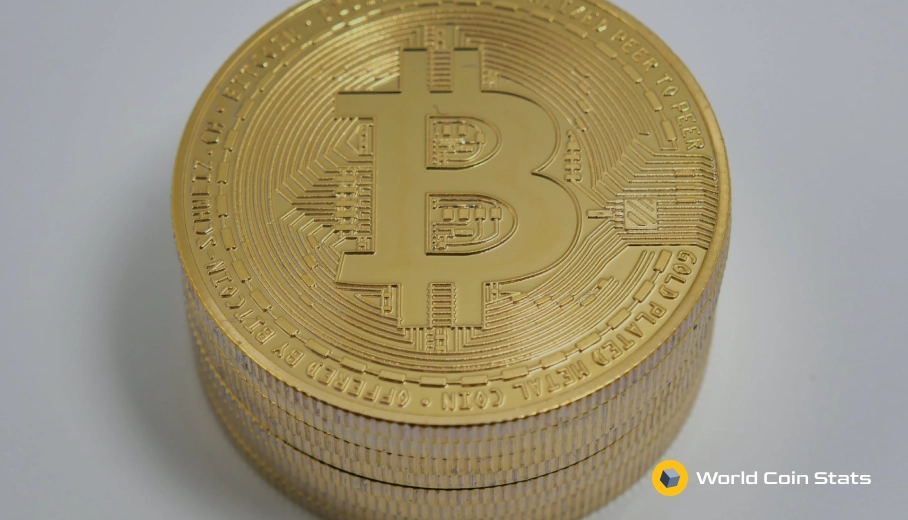Bitcoin vs Waves – Which is Better?
Bitcoin has obviously earned the top spot in the cryptocurrency industry, but this does not come without some competition. One of those competitors is a cryptocurrency project called Waves. This article will explain the differences between the two projects and offer an answer to whether Waves is in fact better than Bitcoin.
Bitcoin Explained
Most of you probably already know about Bitcoin, but we’ll still provide a very brief summary for context. Bitcoin was launched in 2009 by an anonymous developer using the pseudonym Satoshi Nakomoto.
The purpose of Bitcoin was to offer a digital payment solution that eliminated the double spend problem. It utilizes something called blockchain technology, which relies on independent nodes verifying wallet amounts (ie. transactions) on a public ledger.
Nodes can be operated by anyone with a computer and an internet connection. The same applies to Bitcoin – the only requirement to use it is access to the internet.
This led to the libertarian movement sort of co-opting Bitcoin as a strike against big banks controlling the money supply. The original intent of Bitcoin was simply to become a decentralized payment option, which eventually morphed into taking down the entire banking system.
At the moment, Bitcoin has sort of become a “digital gold” due to the increasing scarcity of Bitcoin programmed into the code that generates new Bitcoin, which will be explained in a later section.
One last note, Bitcoin is the most popular cryptocurrency by a large margin. Just about everyone knows about Bitcoin, even if they do not know about cryptocurrency as a whole. A large percentage of the younger generation in America is estimated to hold some Bitcoin, but the exact percentage is unknown for obvious reasons.
Yes, Bitcoin is that ubiquitous.
Waves Explained
Waves is almost a completely different project than Bitcoin. First of all, the purpose of Waves is not to solve the double spend problem nor is it really supposed to be used as a digital currency like Bitcoin was originally intended to be used.
Now, Waves is not some new project that just hopped on the scene.
It has been around since 2016, which makes it older than the 2017 cryptocurrency bull run that made Bitcoin and Ethereum a household name.
Anyway, Waves is more of a competitor to Ethereum than it is to Bitcoin. The simplest explanation is that Waves gives developers the ability to write their own smart contracts on the Waves blockchain. These smart contracts automatically execute when certain parameters outlined in the contract are met – it’s all computer code at the end of the day.
Of course, there is a Waves cryptocurrency token (WAVE), but this is mostly used to pay for transaction fees on the blockchain. It can obviously be used to pay for transactions. That just is not a common use case for it at the moment.
Bitcoin vs Waves Financial Metrics
We have given an extremely brief overview of the cryptocurrencies and what they do. This next section will cover some of the financial metrics of Bitcoin and Waves.
Bitcoin Financial Metrics
Ticker: BTC
Price: ~$36,000
All Time High Price: ~$60,000 (April 15, 2021)
Market Cap: ~$680 billion
Circulating Supply: ~18.7 million
Maximum Supply: 21 million
Block Reward: 6.25 BTC (halves ever 210,000 blocks)
Block Time: 10 minutes
Waves Financial Metrics
Ticker: WAVE
Price: ~$14.14
All Time High Price: ~$35.90 (May 9, 2021)
Market Cap: ~$1.5 billion
Circulating Supply: ~105.3 million
Maximum Supply: Infinite
Block Reward: Varies
Block Time: 1 minute
The Use Case for Waves
As mentioned previously, Waves basically has the same use case as Ethereum. This means that developers can create their own tokens, launch decentralized apps, and write smart contracts on the blockchain.
The big upside that Waves has is that no programming experience is necessary to launch a token on the blockchain. Pretty much anyone can launch their own token to support their own decentralized application.
The ease of creating tokens has led to many projects and businesses using the protocol to create tokens that can be used to pay for certain things or as a means to raise money.
In a sense, you can think of Waves as an ICO platform. It also has some decentralized exchanges that allow users to trade these tokens.
Again, the use case for Waves is vastly different from the use case for Bitcoin as you will see in the next section.
The Use Case for Bitcoin
The use case for Bitcoin is a little different than the original intention.
For those that do not know, Bitcoin was originally created to be used for online transactions. Specifically, it was meant to be anonymous and eliminate the double spend problem that previous iterations of blockchain technology could not overcome.
It solved the double spend problem, but Bitcoin is certainly not anonymous at this point. In fact, it is rather easy to put a name to a wallet using technology developed by Chainalysis.
If you want privacy options, then there are privacy focused cryptocurrencies like ZCash and Monero.
Instead, Bitcoin has become more of a digital gold. Basically, people have decided to purchase Bitcoin because it does an excellent job storing value. The price has always gone up on Bitcoin mostly due to the excellent token fundamentals. Specifically, the maximum supply is capped and the new supply of Bitcoin produced every 10 minutes is halved every 210,000 blocks.
Of course, people still do use Bitcoin for payments. But that is not really the primary use of Bitcoin because the price is a little too volatile for people to want to spend it.
Is Bitcoin or Waves Better?
As we have mentioned before, the two cryptocurrencies are not really comparable because they serve different purposes.
However, Bitcoin is the better cryptocurrency from an investment perspective simply because it has a proven track record.
It has been around for 12 years and pretty much everyone that has purchased Bitcoin in the past 12 years could have made money because the price has always gone up.
That said, Waves does offer a good decentralized ecosystem that allows developers to build out an entire decentralized ecosystem. But the problem with that is there are already well-established projects (Ethereum, Binance Smart Chain) that offer the same features.
To summarize, Bitcoin is the better cryptocurrency simply because it’s more popular and well established. Waves is good at what it does, which is completely different from Bitcoin, but there are better options available than Waves at the moment.
Closing Thoughts
That sums it up for the Bitcoin vs Waves argument. The two cryptocurrencies are so different from each other that comparing is not really even fair. A more apt comparison would be Waves vs Ethereum or Binance Smart Chain.
But that does not change the fact that Bitcoin is still a much more promising investment than Waves due to the massive popularity of Bitcoin.




